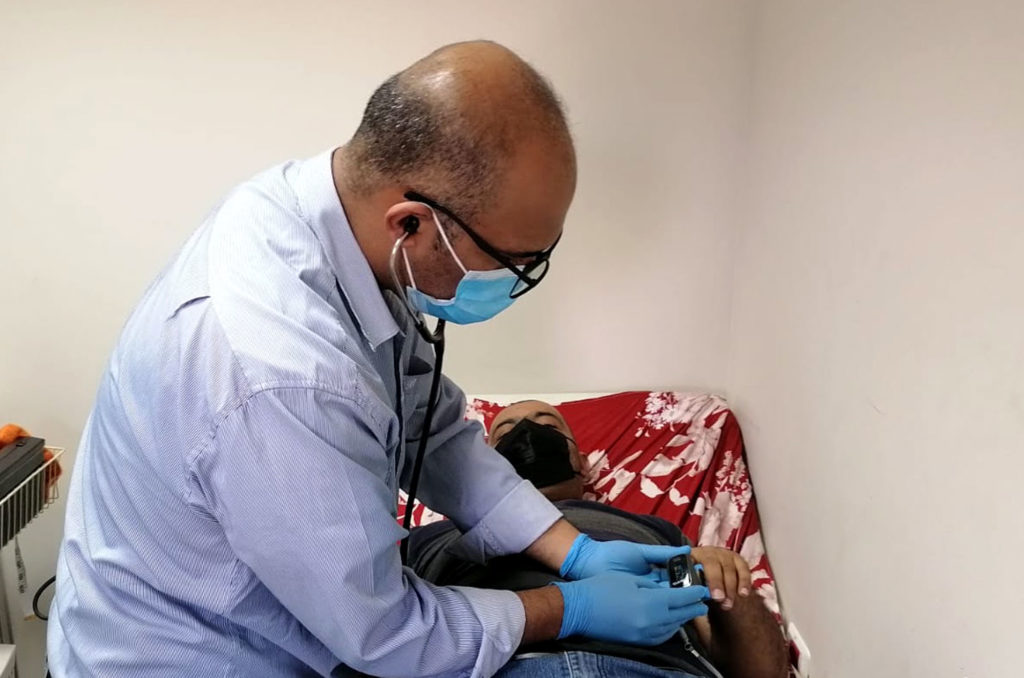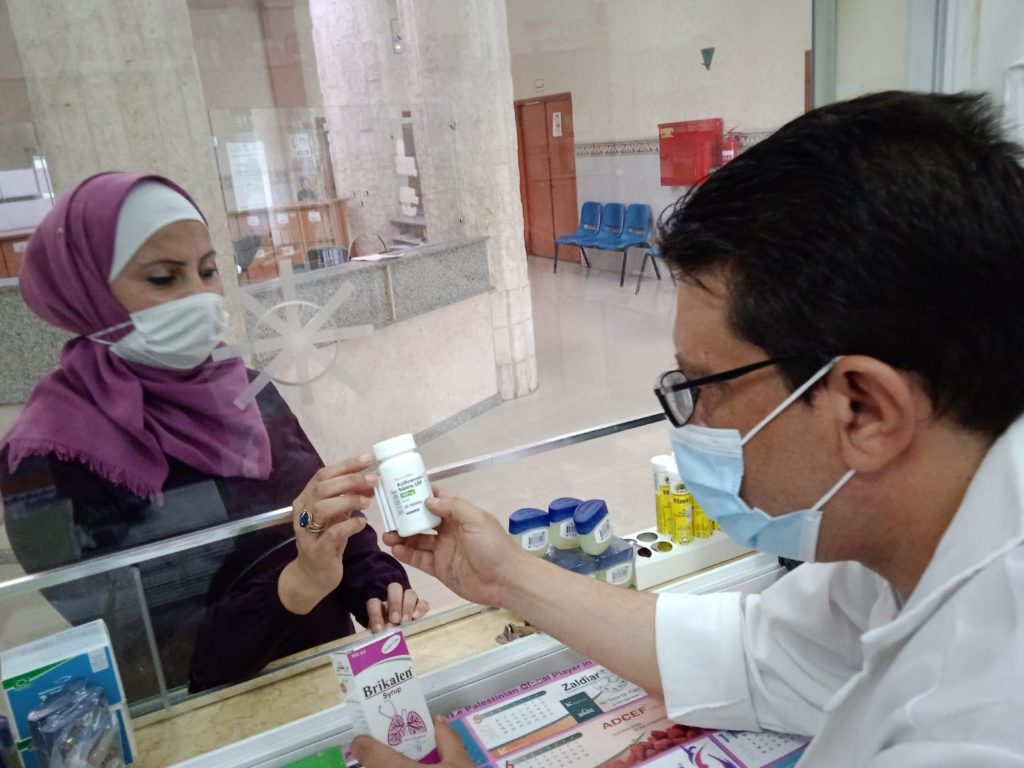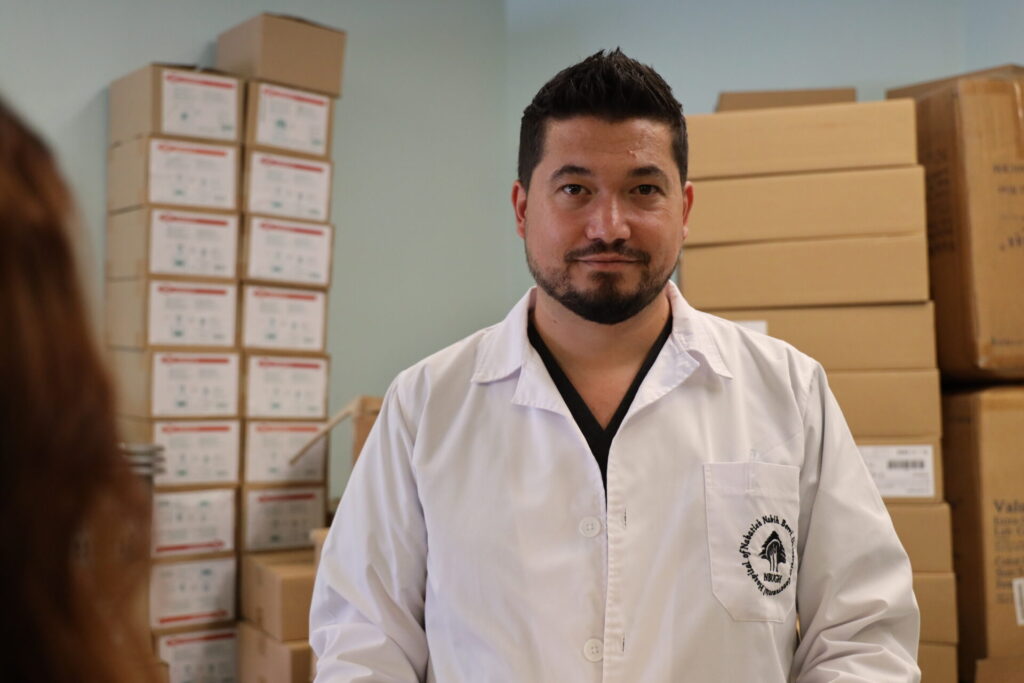Aug, 2021
Combating antibiotic resistance
Antibiotic resistance is a serious global problem, and the Middle East is a particular hotspot. The connection between antibiotic resistance and antibiotic misuse is well established. So combating antibiotic abuse is critical to mitigating the spread of antimicrobial resistance.
The sale and dispensing of medicines in Palestine is regulated by prescription requirements. The rational use of medicine, however, leaves much to be desired in practice. Antibiotics are often sold over-the-counter without a prescription.
Because medicines are freely available at pharmacies and shops over the counter without a prescription, the misuse of medications in Palestine is a serious problem. Many people may decide it is easier and cheaper to self-diagnose rather than see a doctor. They simply buy a drug that seems to be appropriate. And studies confirm that self-medicating with antibiotics is an all-too-common practice in Palestine.
Even when the sick do consult a physician, patients often expect and are given inappropriate prescriptions for antibiotics. Upper respiratory tract infections, for instance, are among the most common forms of illness among Palestinian children in the West Bank. Although these infections are generally viral, parents often mistakenly believe antibiotics are an appropriate treatment. Parents then pressure physicians to prescribe antibiotics. Families also will share their leftover antibiotics with other sick family members or friends.


Public education about the dangers of misusing antibiotics is absolutely vital. The implications of bacterial resistance to common drugs are potentially devastating. In Gaza, antibiotic resistance significantly worsened the challenges that the health system confronted in 2018 while responding to the many sniper wounds incurred at the protests near the barrier wall.


Anera distributes medical donations exclusively through our network of trusted health clinics and hospitals. Donating medicines, including antibiotics, to these health centers enables physicians to make the appropriate medications available to low-income patients at little or no charge. This accessibility helps encourage patients to visit a doctor and get a prescription for the best medicine, rather than buying inappropriate and counterproductive antibiotics over-the-counter when they feel ill. This is especially important given that misuse of antibiotics is particularly high among working class and low-income Palestinians.
Thanks to the support of Americares and other medical donation partners, Anera distributes millions of dollars worth of medicines to health providers in Palestine each year to treat everything from chronic conditions to cancer. In Palestine, restrictions on movement and imports, imposed by years of occupation, challenge the medical system to provide up-to-date care. Hospitals and clinics suffer chronic shortages of critical medicines to respond to their patients’ needs.
The medicines and healthcare supplies that Anera distributes would not otherwise be available in the communities where they are needed the most. For instance, Anera recently distributed two recent shipments of antibiotics, donated by Americares, to recipient healthcare facilities across Palestine.


Azithromycin in Gaza
One shipment that went to Gaza included azithromycin, which is used to treat a variety of bacterial infections, from pneumonia to Lyme disease. Azithromycin is one of the most common antibiotics. Its versatility makes it an essential medicine for healthcare facilities to have in stock.
Anera just 6,000 bottles of azithromycin to 14 clinics and hospitals in Gaza.
One of our recipients is the El Shakhra Association in Gaza City. When we delivered the azithromycin, they were nearly out of the antibiotic. Now they have 300 bottles, enough to last about five months. El Shakhra treats 80 patients a day from the surrounding community. Most have few financial resources and cannot afford to buy medicines. This donation means that doctors will be able to prescribe the antibiotic free of charge to their patients.
"We are in dire need of this medicine,” says Raed Baraawi, the pharmacist at El Shakhra. “Without it, we would have had to squeeze our limited budget to buy it from local suppliers. And that assumes it would even be available to buy in Gaza. We now mostly need it for COVID, because it's on the list of treatments that comes from the Ministry of Health."
Antibiotics Delivery in the West Bank
In two recent shipments for the West Bank, Americares donated five antibiotics: amoxicillin, cefdinir, azithromycin, minocycline HCL and clindamycin HCL. This great variety of antibiotics treats infections that affect the lungs, skin, ears, blood, intestines, lymph nodes, reproductive organs, eyes, the urinary tract, etc. Anera distributed the medicines to 11 resource-strapped hospitals and clinics across the West Bank.
“Anera gave us here at the Palestinian Red Crescent in Dura village a number of valuable antibiotics. Those antibiotics often came in many forms: suspension, tablets and injection for both children and adults,” says Dr. Hasan Horoub. “I would prescribe antibiotics to treat patients with upper respiratory infections, suffering from tonsillitis and inflammation of the middle ear. As a physician, I only prescribe antibiotics based on the results of bacterial culture tests to identify the most effective antibiotics for a specific type of bacterial infection. It’s so important to be careful and cautious so as to mitigate any future antibiotic resistance.”


“As a physician, I only prescribe antibiotics based on the results of bacterial culture tests to identify the most effective antibiotics for a specific type of bacterial infection. It’s so important to be careful and cautious so as to mitigate any future antibiotic resistance.”
Thank you
Responsible, reliable access to medicines is life-saving in the vulnerable communities Anera serves in Palestine. Our healthcare partners and the disadvantaged patients they serve rely heavily on support from international donors like Americares.
We’re immensely grateful to our medical donations partners and to all of Anera’s donors who support the people of Palestine to help make quality healthcare available to everyone.


